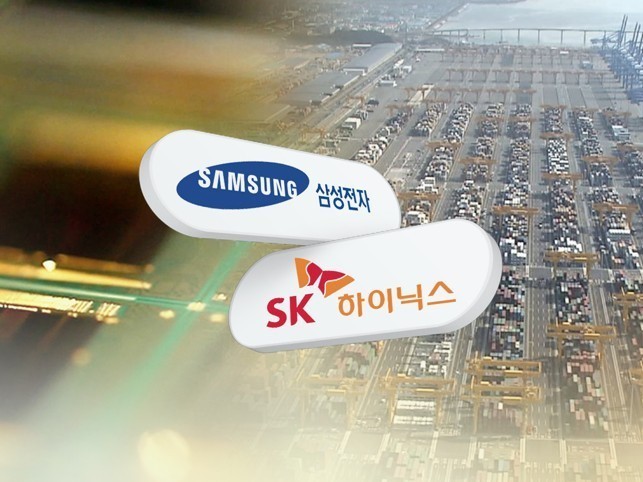 |
(Yonhap) |
South Korea's chip industry needs more support from the government to fend off challenges from fast-rising China and catch up to the dominant leader, the United States, a Seoul-based business lobby group said Monday.
According to the Federation of Korean Industries (FKI), South Korea had an average 18 percent market share over the past decade, only behind the US with 49 percent. Japan came in third with 13 percent, followed by Europe with 9 percent, Taiwan with 6 percent and China with 4 percent.
However, South Korea -- home to memory chip giants Samsung Electronics Co. and SK hynix Inc. -- has seen itself sandwiched between the US and China in recent years.
While the United States maintained its dominant status over the past 10 years, China has increased its market share from less than 2 percent to 5 percent last year.
In contrast, South Korea's market share declined. The country's 14 percent market share in 2010 jumped to 24 percent in 2018 before falling to 19 percent last year.
With China beefing up its chip R&D capabilities, the FKI said the technological gap between South Korea and China in the system chip sector is only six months as of 2017. The gap between the United States and South Korea was 20 months as of 2017.
The FKI said the rise of China is a result of Beijing's massive support to its semiconductor industry.
According to the OECD data that tracked 21 chip companies in between 2014 and 2018, three of the top five chipmakers with the highest government subsidy ratio per sales were from China. The data showed SMIC received government aid, which includes tax cuts and R&D support, equivalent to 6.6 percent of its sales.
Citing the data, the FKI said government support for Samsung and SK hynix was valued at less than 1 percent of their sales.
With the US-China standoff intensifying over the global chip industry, the FKI expected Washington to expand its support for American chipmakers to cope with Beijing's 170 trillion-won investment in the sector.
"The competition in the chip industry will be fiercer than at any other time," said Kim Bong-man, who heads FKI's international cooperation division. "With the technology power game between the United States and China, Japan's export curbs continue to weigh down our chip industry. To cope with challenges, the government should come up with support measures, such as tax cuts." (Yonhap)





![[Exclusive] Hyundai Mobis eyes closer ties with BYD](http://res.heraldm.com/phpwas/restmb_idxmake.php?idx=644&simg=/content/image/2024/11/25/20241125050044_0.jpg)
![[Herald Review] 'Gangnam B-Side' combines social realism with masterful suspense, performance](http://res.heraldm.com/phpwas/restmb_idxmake.php?idx=644&simg=/content/image/2024/11/25/20241125050072_0.jpg)

